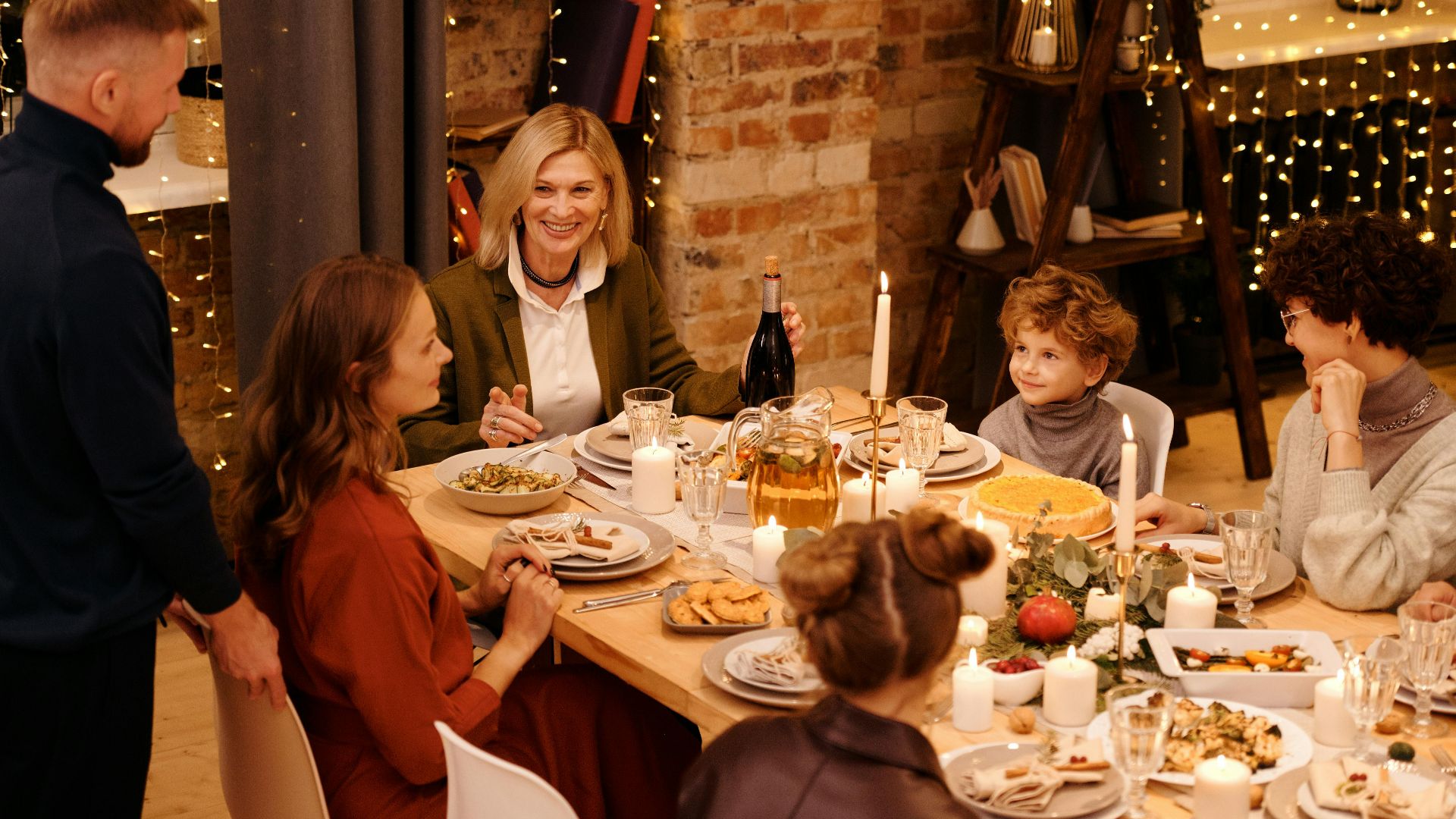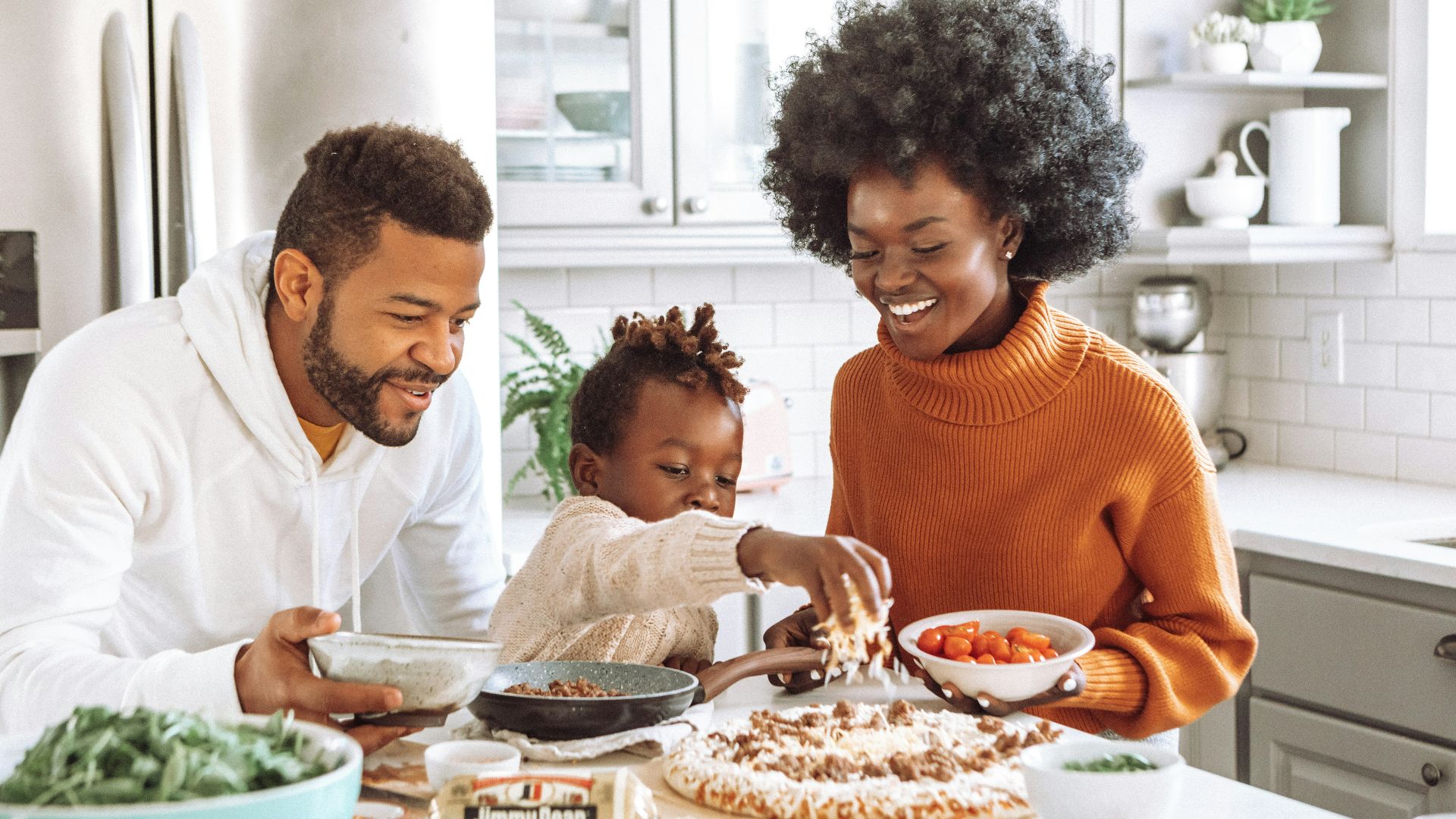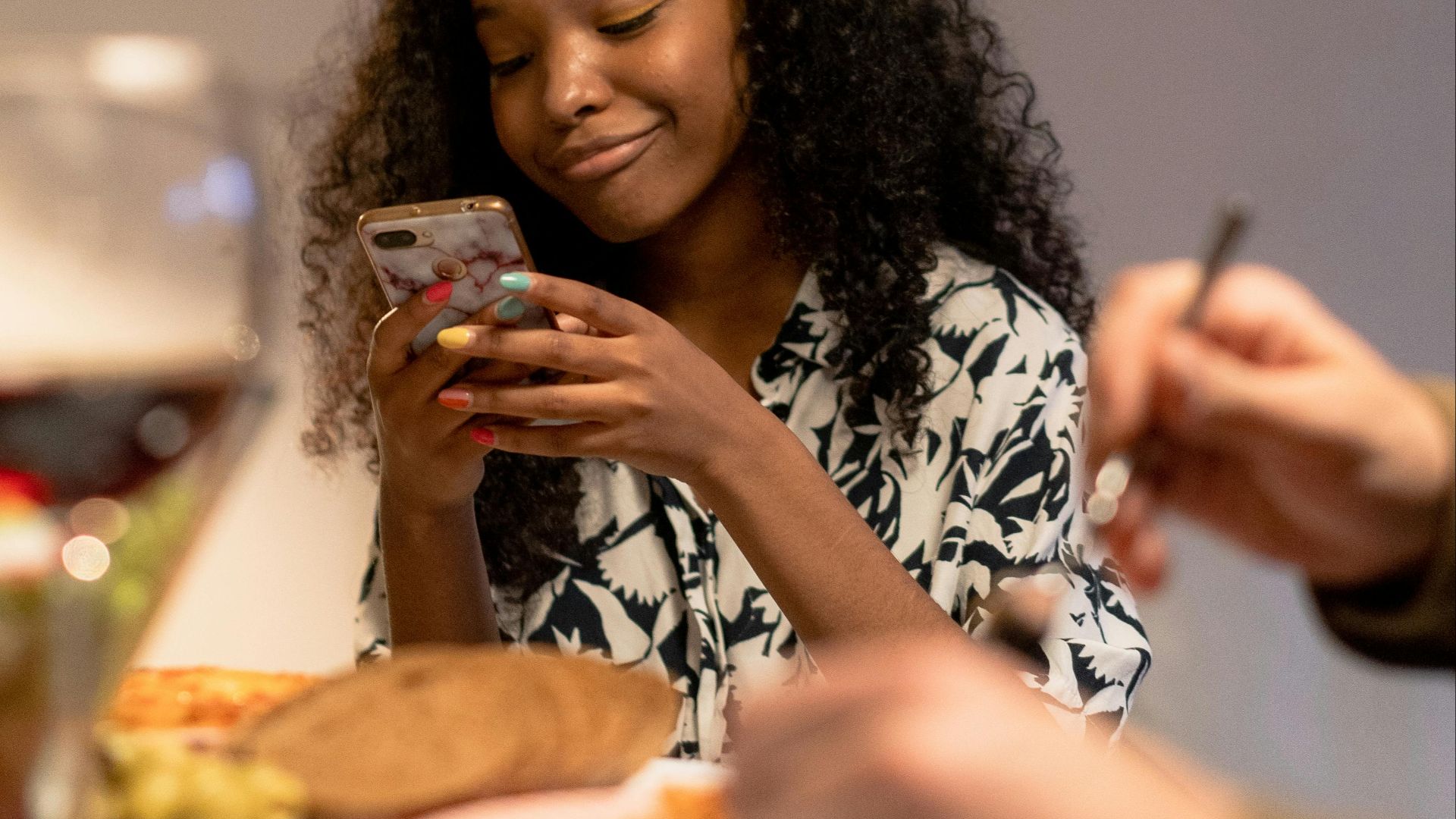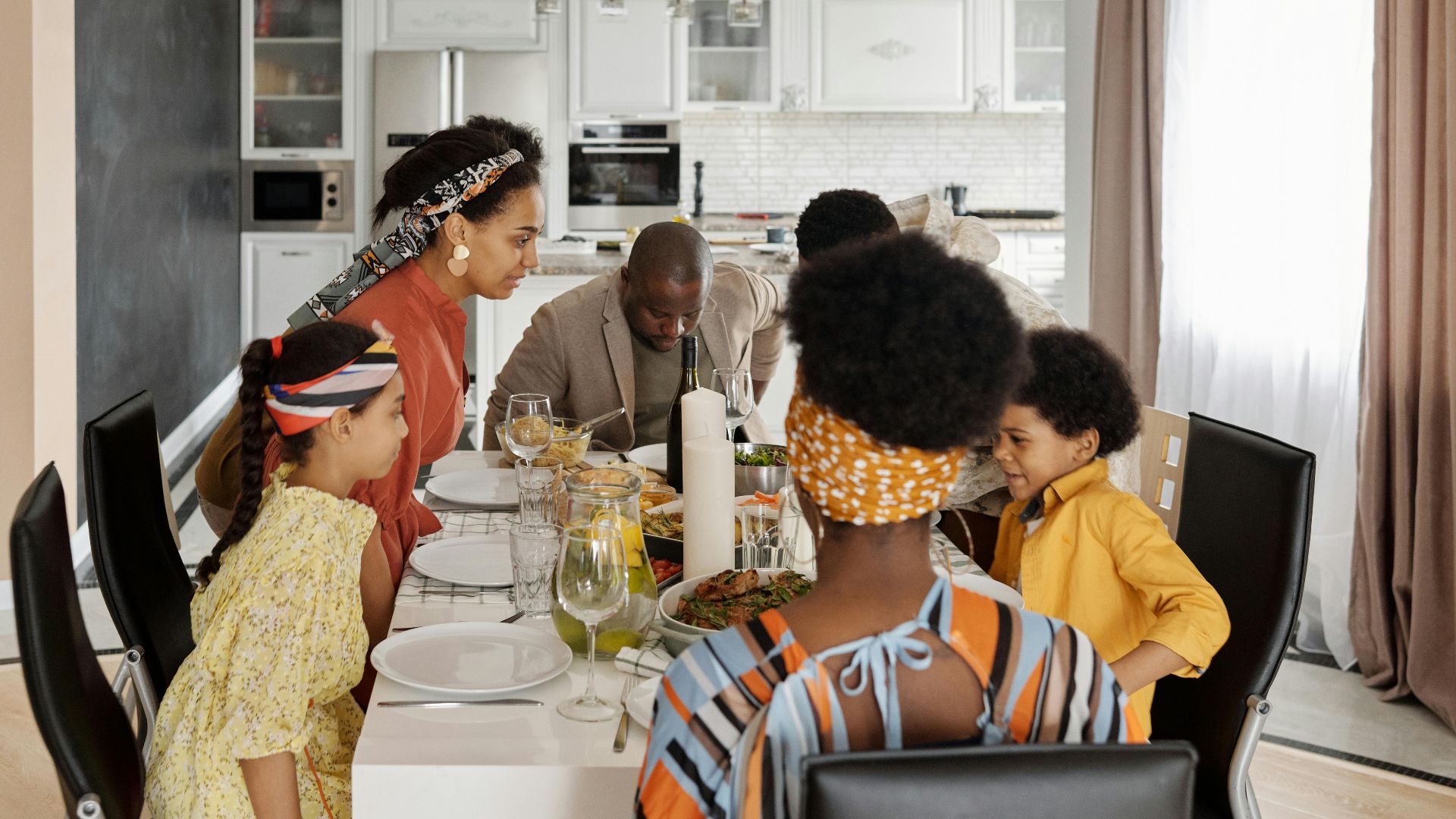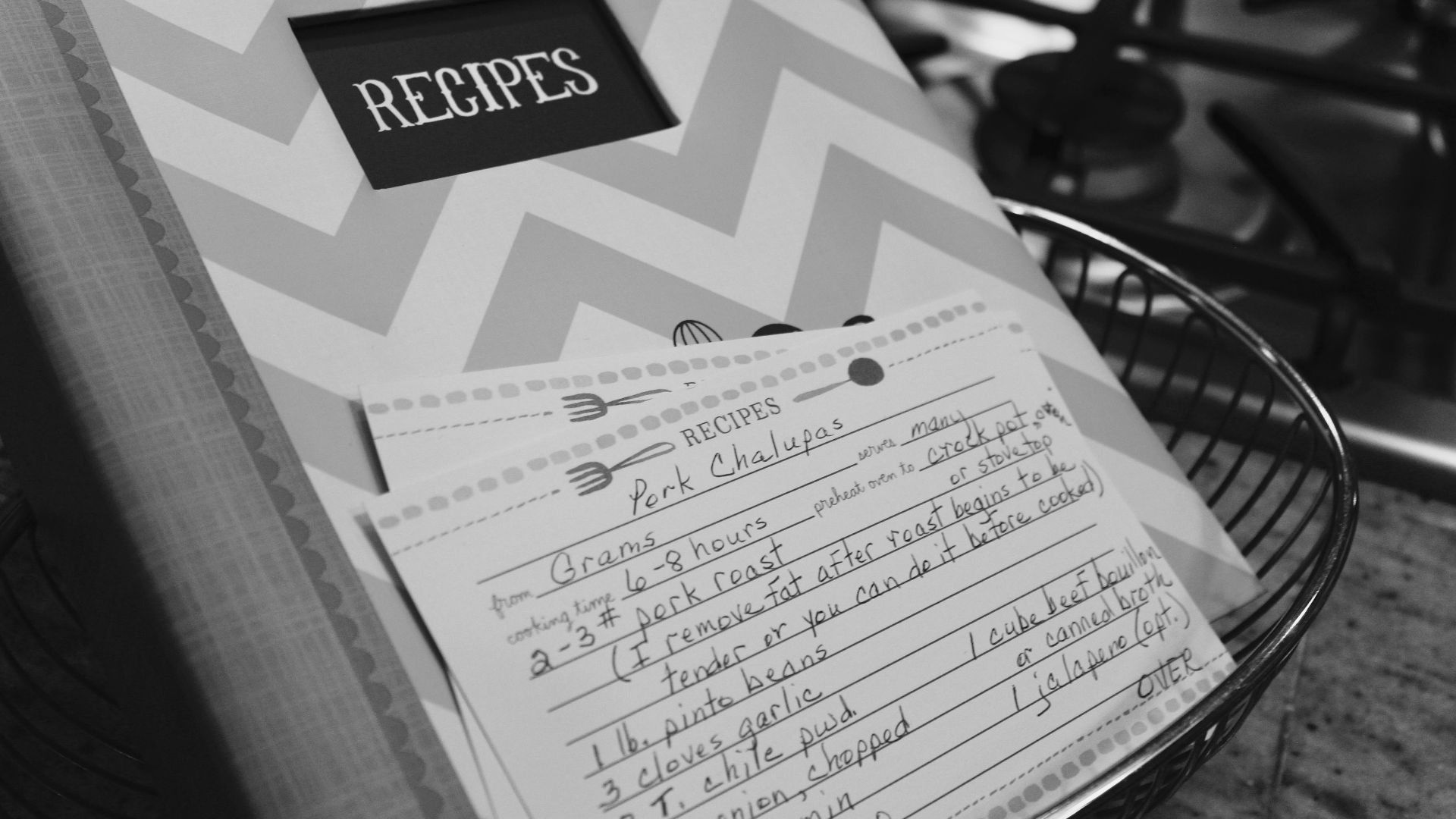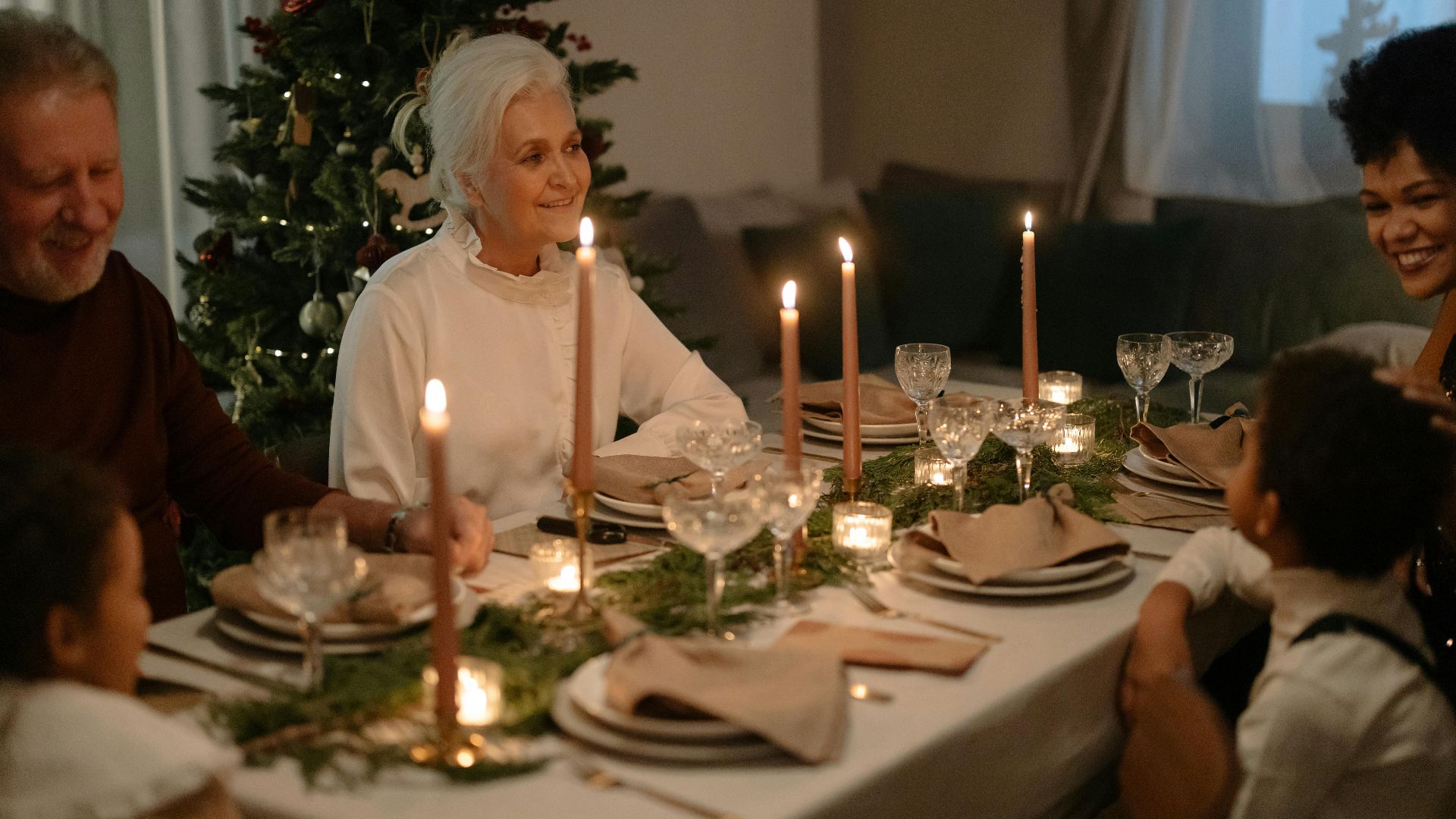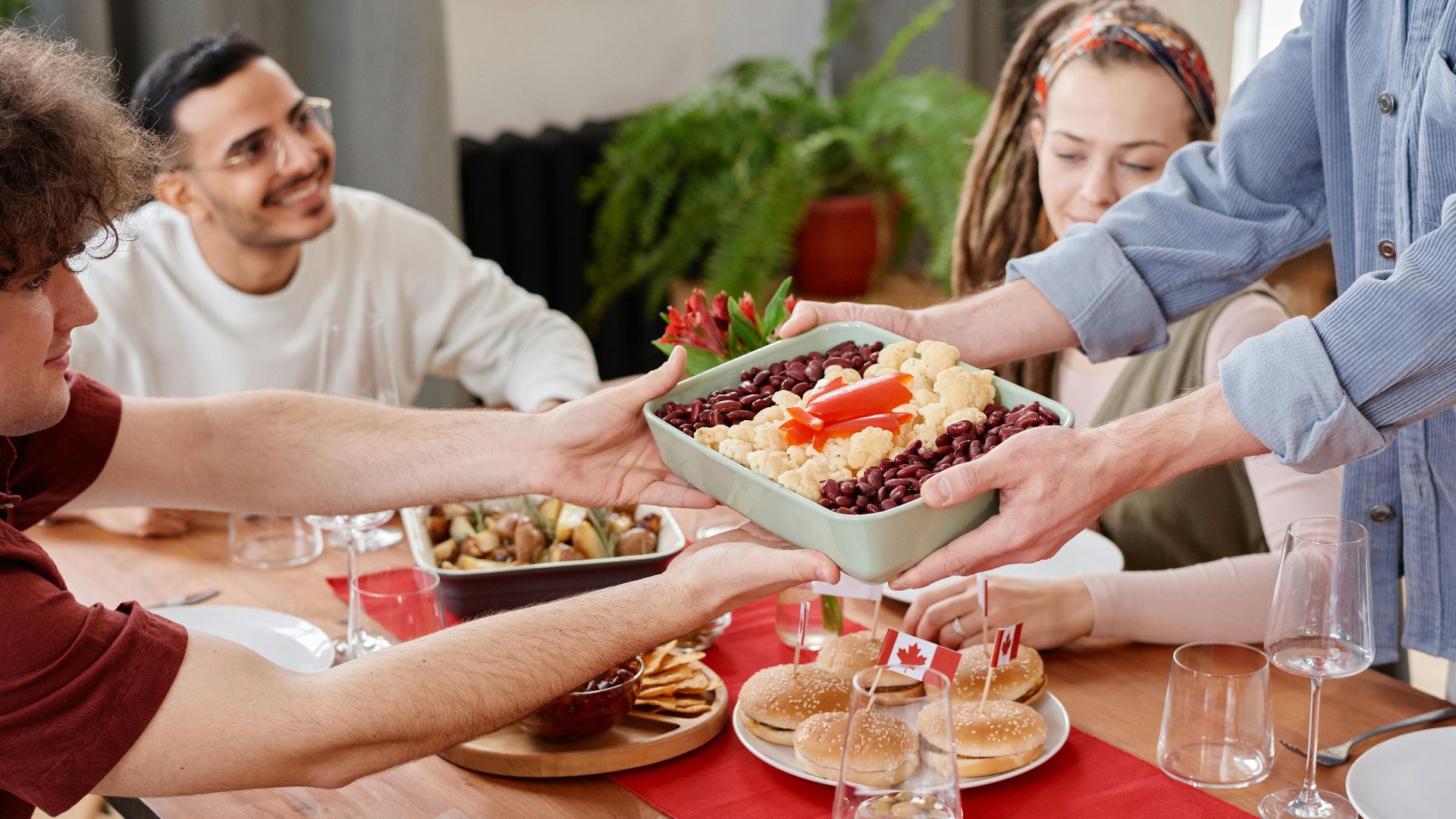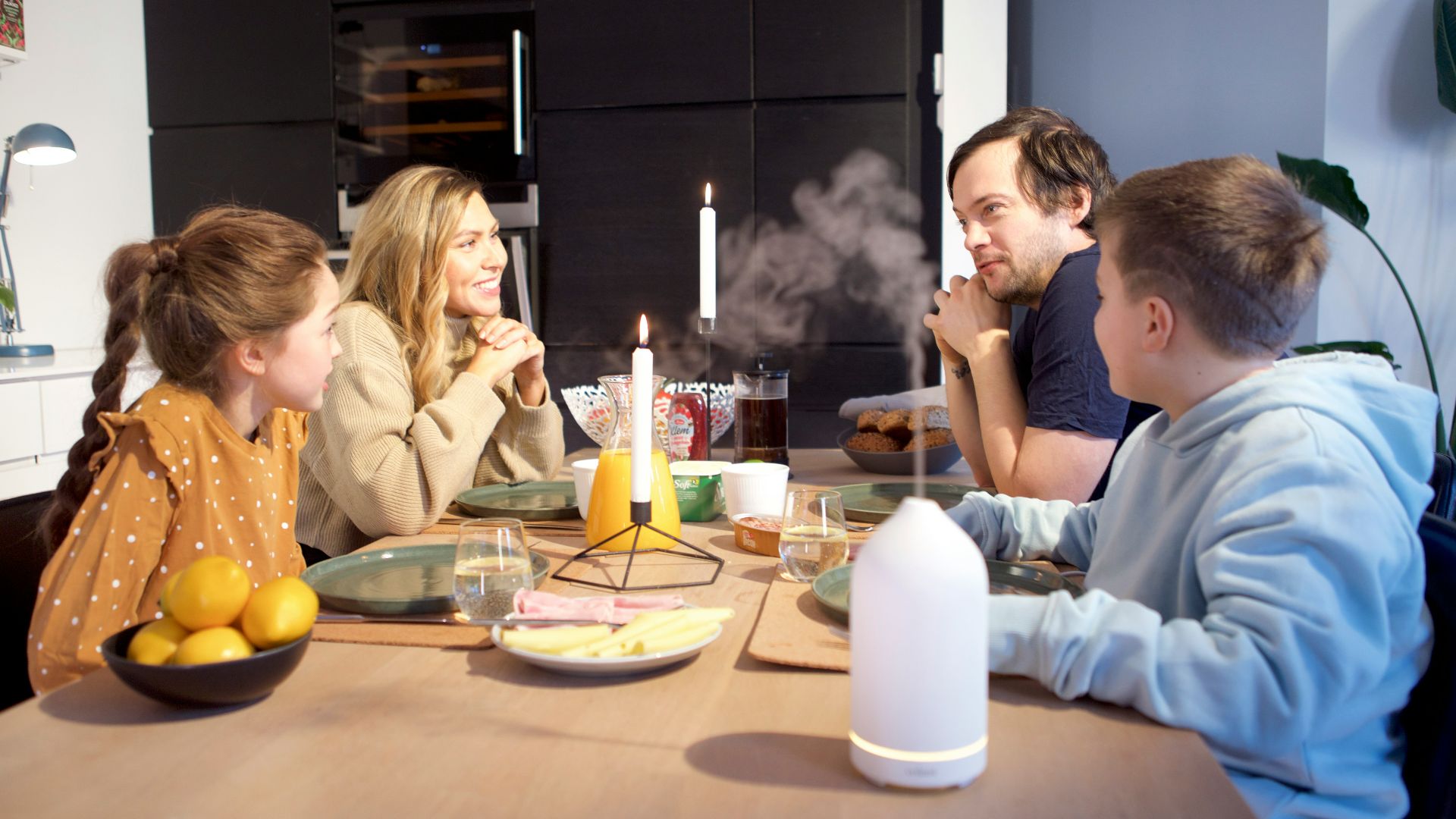Turning Meals Into Memories
Family dinners can easily slip into autopilot: eat fast, clean up, then everyone drifts back to screens. But the table can be more than just a refueling station. It’s a built-in chance to laugh over small mishaps or discover what actually happened at school. And you don’t need gourmet recipes to make it work—just small adjustments that add spark to the meal. So, let’s explore 20 ways that can turn family dinners into moments everyone actually enjoys.
1. Shuffle Cooking Duties
Teamwork makes the dream work, especially in the kitchen. That’s why rotating cooking duties not only teaches practical skills but also gives everyone a sense of responsibility. Plus, involving kids in cooking is associated with better eating patterns and healthier body weight among children.
2. Create A Tech-Free Table Rule
If you want better family conversations, try a simple no-tech dinner rule. Pop all phones into a shared basket, which will make mealtime feel more personal. And without screens buzzing, there’s more space for stories and meaningful moments.
3. Trade Seats To Change The Dynamics
Switching up seats might sound simple, but it can completely change the vibe at dinner. This is because sitting next to someone new opens fresh conversations and a little laughter. On top of that, such a playful shuffle keeps mealtime from feeling predictable.
4. Add A Weekly Theme Night
Spice up family dinners with a weekly theme night. The whole idea behind this is to inject excitement. Popular options include classics like "Taco Tuesday" or whimsical choices like "Breakfast for Dinner." Besides, themed meals make family dinners less routine.
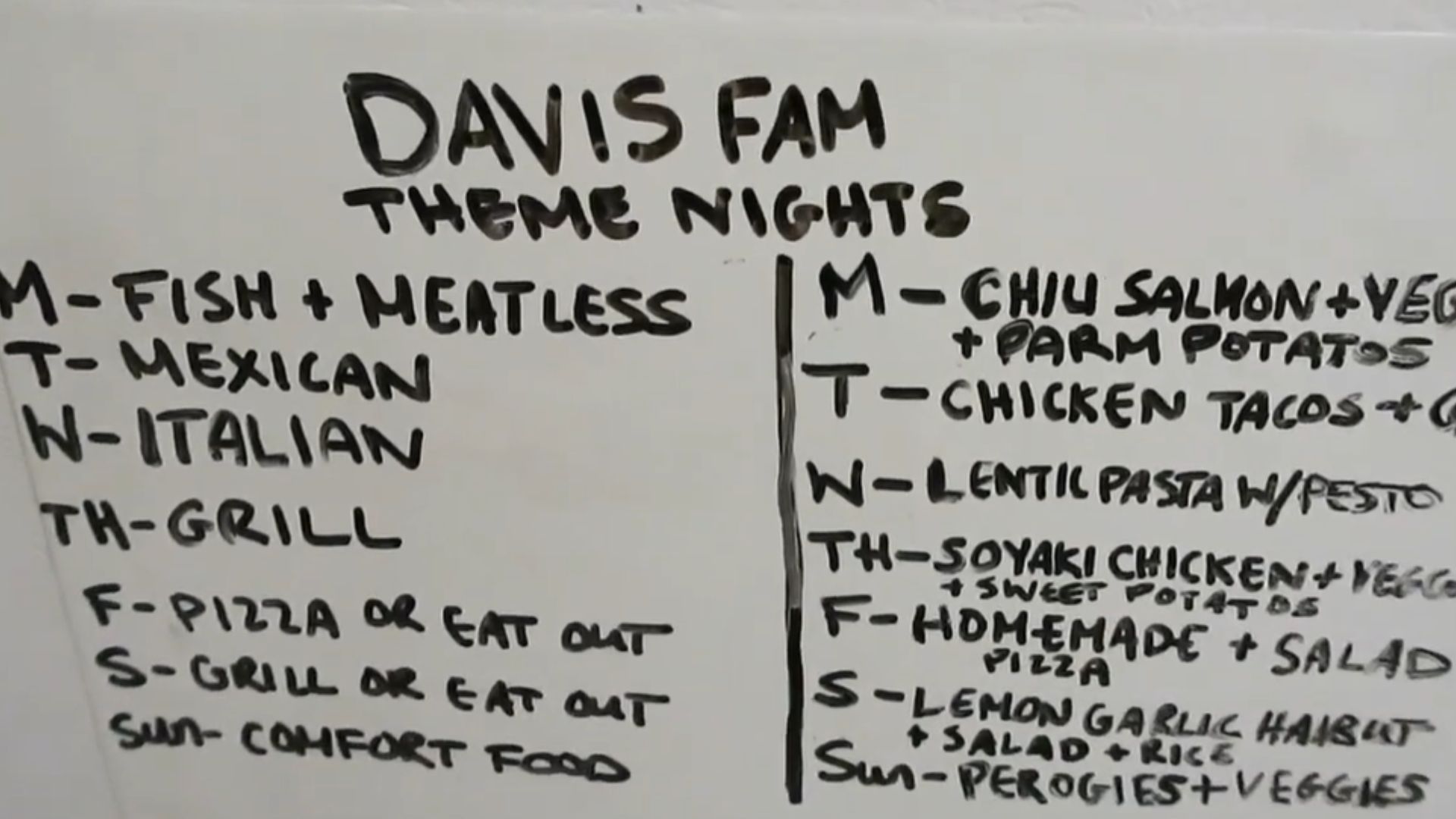 DINNER THEME NIGHTS | a week's worth of meal ideas by K A I L E Y D A V I S
DINNER THEME NIGHTS | a week's worth of meal ideas by K A I L E Y D A V I S
5. Light A Candle For Atmosphere
The flicker of a flame turns mealtime into a cozy escape from the day’s chaos, inviting everyone to calm down and savor the moment. For extra magic, try a candle-lighting ritual where each person shares a hope for the week.
6. Serve A Family Recipe
Dust off those treasured family recipes and bring them to the dinner table, as sharing stories about their origins adds depth to mealtime. You can even consider creating a handwritten recipe book to capture new favorites from each generation.
7. Spotlight Dish Of The Night
Pick a star from the table and talk about it. Share where it comes from, who taught the recipe, or fun facts about the ingredients. Celebrating a dish in this way turns mealtime into storytelling and helps everyone appreciate the effort behind the food.
8. Make It A No-Rush Meal
Instead of racing through dinner like it’s just another pit stop in the day, let’s just treat it like the main event. To do this, set a 20-minute timer to keep everyone at the table, which will ensure time for stories and connection.
9. Celebrate Small Wins At The Table
Turn family dinners into mini-celebrations by acknowledging even the smallest victories. Whether it’s acing a spelling test or finally riding that bike, sharing successes boosts confidence. It’s a simple yet joyful way to add more smiles—and a little sparkle—to mealtimes.
10. Invite Extended Family Occasionally
Expand your family dinner circle to include extended family. Grandparents, aunts, uncles, and cousins can bring fresh perspectives and stories to the table. And if distance is a factor, try a "virtual dinner guest" via video call.
11. Bring A Surprise Dish Night
Shake up the dinner routine with a surprise dish night, where each family member adds a mystery item to the meal. It could be something new or something wacky. The big reveal sparks laughter and a little friendly competition over who brought the most creative dish.
12. Create A Dinner Photo Album
Once a week—or whenever the mood strikes—snap a quick group selfie around the table. Over time, you’ll build a colorful scrapbook of moments that tell the story of your family life. The real magic happens when you flip back through the photos months or years later and relive those little details you might have forgotten.
13. Introduce A New “Dinner DJ” Daily
Liven up family dinners by introducing a “Dinner DJ,” a rotating role that gives each family member the chance to set the soundtrack for the evening. Soon, you might start a “song of the night” tradition that everyone looks forward to.
14. Cook Foods From Different Cultures
Introduce a world of flavor and cultural exploration to family dinners by cooking foods from different cultures. This practice can reduce picky eating habits and open children up to new culinary experiences. Families can also assign each member a country to research together.
15. End Dinner With A Surprise Dessert
Keep something hidden until the very last moment—a cake waiting in the fridge or sundaes secretly prepared with colorful toppings. Bring it out with a playful reveal, and it will turn the end of the meal into a mini celebration.
16. Play A Quick Game At The Table
Games require almost no preparation. You can invent something as simple as “who can keep a spoon on their nose the longest.” By weaving games into dinner, families build traditions that kids carry into adulthood.
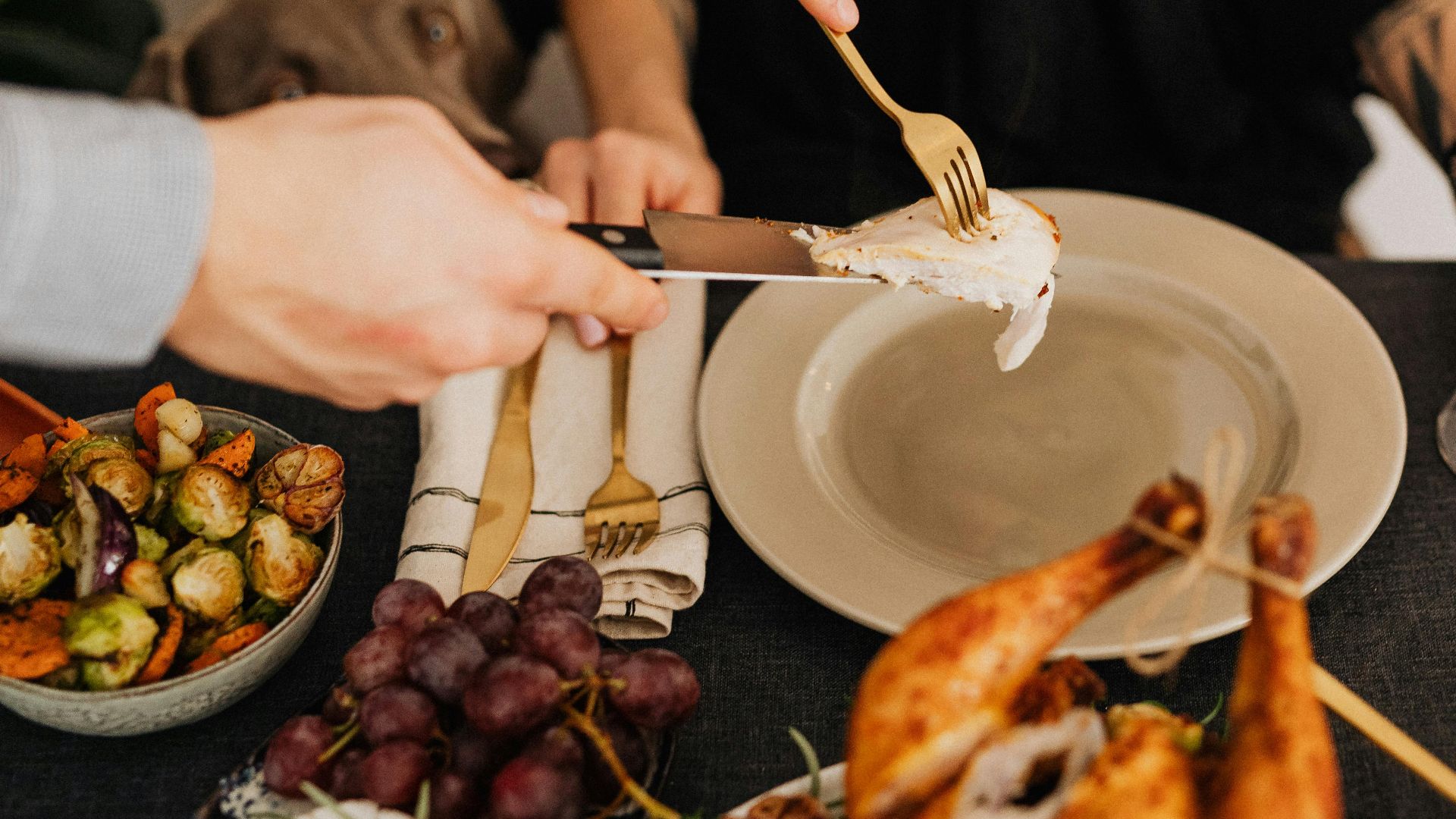 Photo By: Kaboompics.com on Pexels
Photo By: Kaboompics.com on Pexels
17. Pass Around A Question Of The Night
This practice encourages thoughtful discussions among family members, as sharing answers helps develop listening skills and empathy. Questions can be like “What made you laugh today?” or “Where would you travel if you could go anywhere?”
18. Try Family-Style Serving
Instead of individual plates appearing in front of everyone, try the old-fashioned “round-robin” approach, where dishes are passed from hand to hand. The flow of passing, serving, and sharing also slows the meal down in the best way.
19. Invent A Signature Family Drink
Give your family dinners a splash of personality by inventing a signature family drink. It doesn’t need to be fancy, just something refreshing and uniquely yours. Once you’ve perfected it, give the drink a family-approved name.
20. Plan Tomorrow’s Menu As A Family
Turn tonight’s dinner table into tomorrow’s meal-planning headquarters. Before clearing the plates, spend a few minutes chatting about what everyone would love to eat next. Kids get excited about their ideas, while parents appreciate fewer last-minute decisions.


